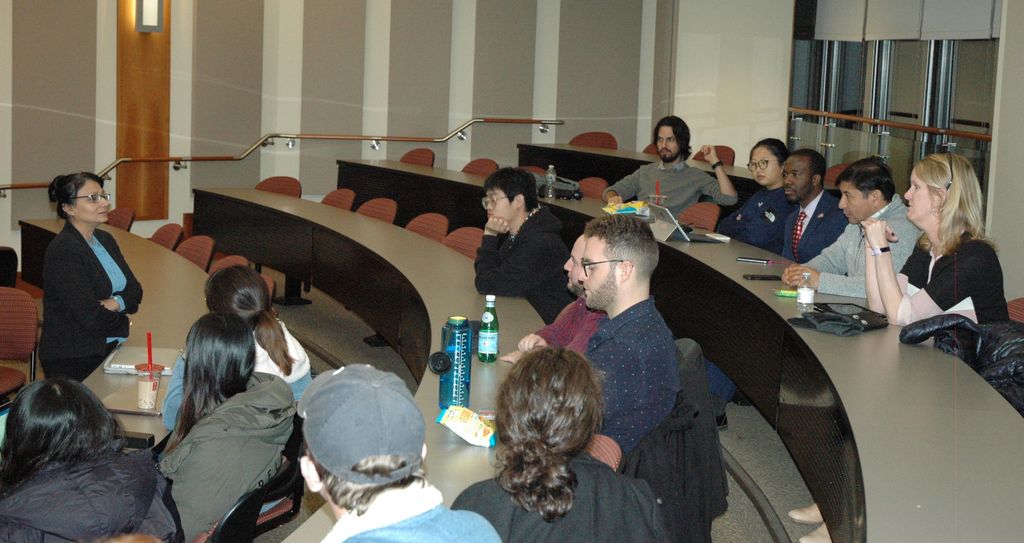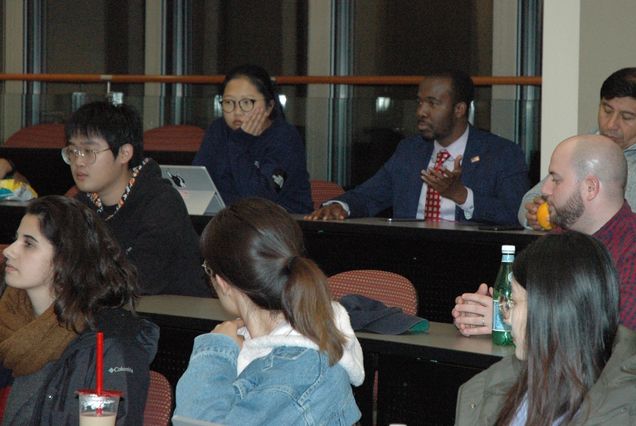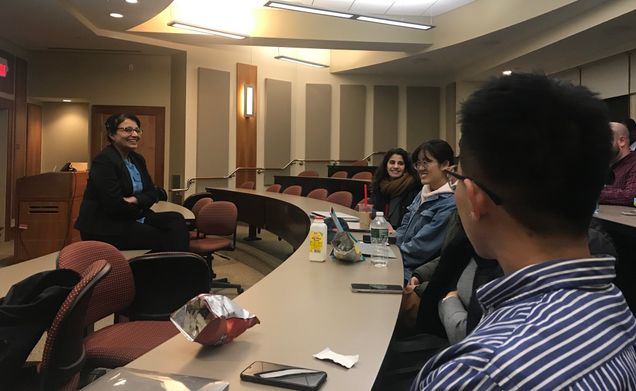BUCPUA’s Fall 2019 Town Hall — On Vision 2025 and a Growing Program

BUCPUA held their annual town hall Thursday evening, November 7, 2019, where students, faculty, and staff discussed where the program is currently at, goals for the future, and initiatives being taken to reach those goals. Dr. Madhu Dutta-Koehler, Professor of the Practice and Program Director, presented on logistics, concerns, and the future of BUCPUA throughout the evening. With an 89% employment rate after graduation, 650+ people in the CPUA community, and a 50% growth rate, Dr. Dutta-Koehler stressed the importance of academic development, increasing enrollment, career services, and alumni networking for the coming years.
BUCPUA will achieve these goals with Vision 2025. Vision 2025 is BUCPUA’s new creative program building effort centered on the E2Pedagogical Model that focuses on both exponential and experiential learning. Courses will encompass more experiential learning where knowledge will link to professional practice, becoming more practical for students with a CPUA degree. Dr. Dutta-Koehler explained how teaching methods must change since “solutions are not what they used to be, therefore we need new ways of thinking and solving problems.”
CPUA will also focus on increasing full-time enrollment and international diversity as well as reaching new heights through program outreaching and — for the first time ever — fundraising. Not only is CPUA looking for the best model to implement for hybrid/online degrees, CPUA is also looking to initiate interdisciplinary graduate degrees and 4+1 programs across BU. There are also steps being taken for CPUA to become a PAB accredited program.

One implementation on the forefront is establishing a Laptop Program which would give students access to subsidized laptops with installed applications to all the software necessary for their planning profession. The idea behind the Laptop Program is that every student would have access to the same technology and platforms, increasing collaboration effectiveness, and allow students to be more equipped for their future career in planning. However, those in attendance for the town hall agreed that it would be best if the program was optional or offered to students in particular classes. Students want the software for themselves, and a recommendation made was for CPUA to hold workshops to setup programs and secure student licenses.
After discussing Vision 2025, Dr. Dutta-Koehler, opened the floor for discussion and feedback on a few topics including events, alumni engagement, and internships. The number of BUCPUA events has increased, yet attendance has decreased, so Dr. Dutta-Koehler posed the question ‘what changes needs to be made?’ A common issue members of the CPUA community had with past events is their timing. Most events are held during class so switching up the timing of events would be helpful, and many audience members suggested the positive reinforcement of class participation for attending program events.

Another hot topic of the night was increasing alumni engagement and how connecting alumni with current students would be beneficial for mentoring and networking opportunities. Suggestions for increasing alumni connectivity included creating events for CPUA members during alumni weekend, introducing UPA Table Talk Sessions, as well as creating a yearly alumni event with a panel and a banquet — which also be paired with the new initiative to fund raise.
The night ended with a conversation on the importance of internship and increasing the number of students who partake in internships. Currently only 36% of students have completed an internship and CPUA would like to increase that percentage due to the valuable experience internships hold. However, it was duly-noted how internships can be expensive for students (since an unpaid internship can equate to the workload of a job) and hard to organize or find. One solution discussed was approaching internships as a self-guided study which equates to class credit. Another solution discussed was creating a project-based internship that is offered as a class where students would work for an employer and check in with a professor, working on a project for a grade.
Overall, BUCPUA’s Fall 2019 Town Hall was a major success. The future of the program was discussed at length, community opinion was gathered, and how positive progress of the program will continue through Vision 2025.
Delanie Fico, CAS ’21